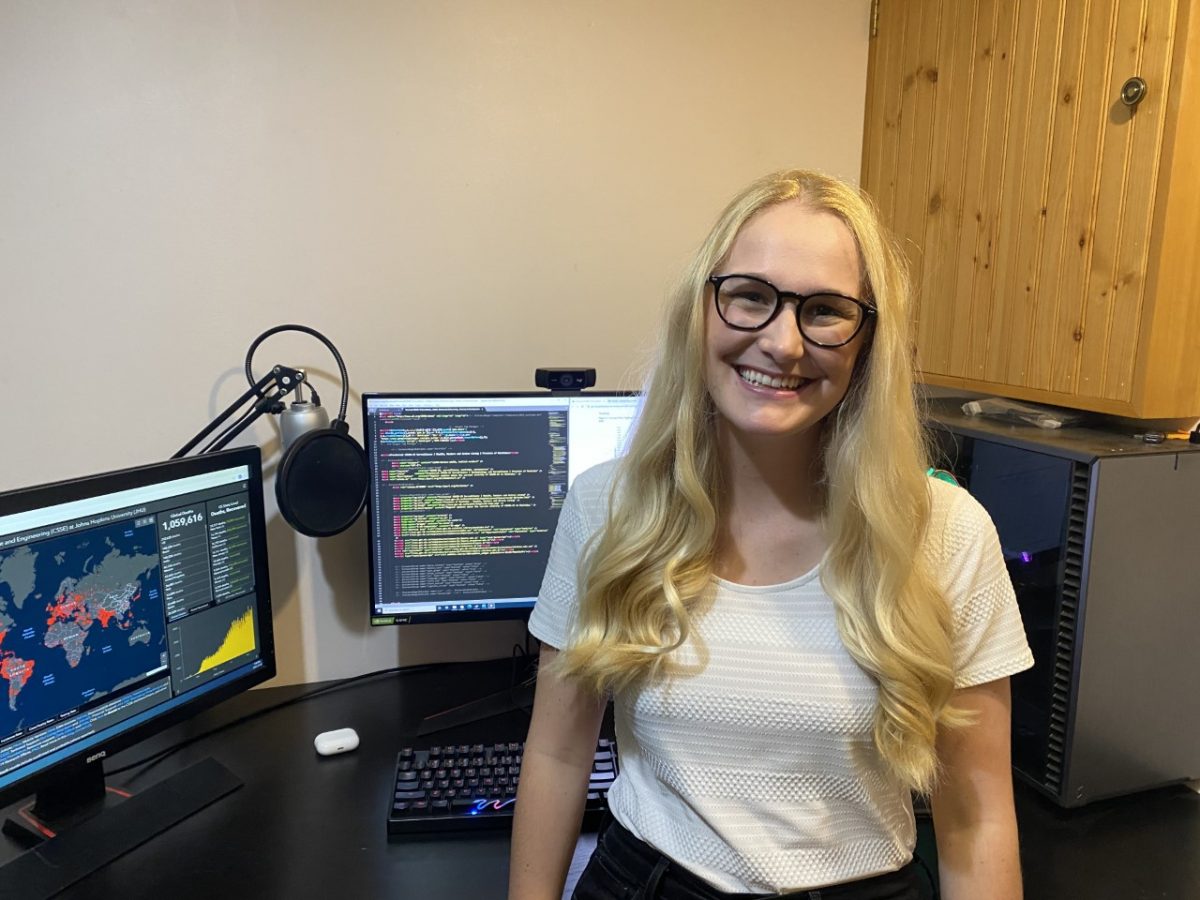
Science Co-op student, Margot Henry
How statistics is applied during a pandemic
Data gathered by Science Co-op student Margot Henry relating to COVID and hospitalizations is being used to drive public health action at Manitoba Health.
Congratulations to Margot for her honourable mention in the 2020 UM Co-op Champion Awards. Meet the UM Co-op Champion Award winner here.
Margot Henry knows the difference one choice can make. Prior to entering the Faculty of Science’s Co-op program, UM Science student Henry hadn’t even considered going for a Master’s degree. To hear her tell it, she was focused on finding a job after graduation, plain and simple.
“Science Co-op was by far the best decision of my undergrad. You learn many things in your classes, but a lot of it is theoretical. I didn’t actually know how statistics and all the things I was learning in class was applied in the real world. I didn’t know what I was going to do with my undergraduate degree after I graduated.”
Henry’s first co-op term was spent under the supervision of Dr. Aleeza Gerstein. At the time, Gerstein was new to the UM, a shared hire between the Departments of Statistics and Microbiology. Not only was it Henry’s first time as a co-op student; it was Gerstein’s debut as a co-op supervisor. Henry says that it was during that time when she was able to experience the research side of applied statistics. It was also the beginning of learning how to code, and the importance of coding with regard to statistics.
Both Henry’s second and third co-op terms were spent at Manitoba Health. She reports her stints there as a junior epidemiologist taught her a great deal about how statistics is applied in a government setting. During that time, one of her supervisors at the government agency was Dr. Carla Loeppky, Director of Epidemiology and Surveillance Information Management and Analytics.
Loeppky says that Henry’s work went from “… preparing simple descriptive code relating to reportable diseases to merging different data sets to run complex analyses. It has been exciting to see her gain confidence, develop expertise in the field of public health, and provide interpretation of her work. Recently, the evidence she has generated relating to COVID and hospitalizations has been used to drive public health action.”
Henry’s final co-op term allowed her firsthand knowledge of how statistics is applied during a pandemic. Henry says, “The whole work term was COVID-19 projects and reports. It was exciting to be on that side of the pandemic.”
Senior Epidemiologist Dr. Songul Bozat-Emre was another of Henry’s supervisors at Manitoba Health. She describes the hard-working co-op student as “exceptional”, adding that “… her work has provided evidence to better understand the risk factors associated with severe outcomes among COVID-19 cases in Manitoba.”
After finishing her co-op, Henry reflected on everything she had learned in order to decide what she wanted to do after graduation from UM. As such, she plans to pursue a Masters in statistics with an interest in biology and coding. Her advisor is her former co-op supervisor Gerstein. Henry feels that they worked well together previously, and is very excited to be back in Gerstein’s lab in the Buller Building.
When asked if she feels that the Science Co-op program was a worthwhile experience, Henry is quick to say that without it, she wouldn’t have opted to continue her studies at the graduate level.
“I had my mindset on finding a job after I graduate; a Masters was not even crossing my mind.”
Henry’s final thoughts on co-op are positive:
“The [Science] co-op team are superstars. They are there when you need them. They make you feel confident, help you build your resume, prep you for interviews, are there if you just need to talk or have any questions. I highly recommend the co-op program to every single student!






